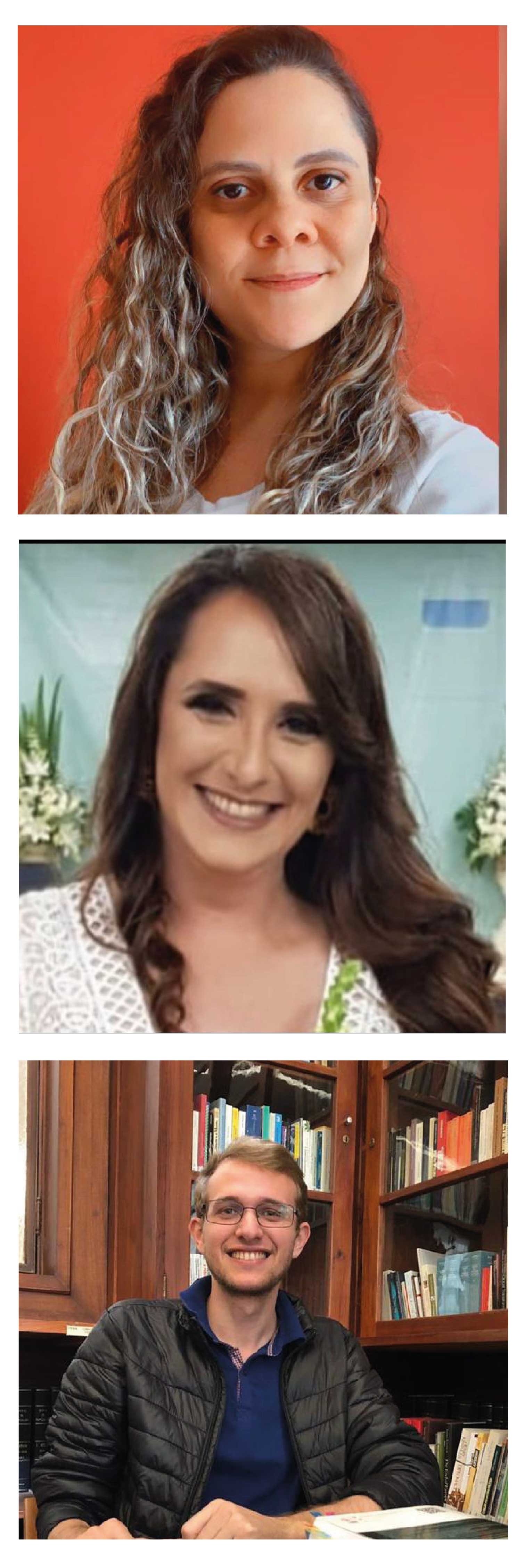Plataforma Lince: inovação social para refugiados, migrantes e apátridas
DOI:
https://doi.org/10.46901/revistadadpu.i17.p189-204Palavras-chave:
Lince, Refugiados, Imigrantes, Apátridas, TransculturalismoResumo
O número de pessoas forçadas a se deslocar pelo mundo aumentou significativamente nos últimos 20 anos. Considerando este cenário, a Plataforma Lince, resultado do Programa de Inovação Tecnológica, foi criada para sustentar uma base de dados para o acolhimento, a assistência jurídica e a inclusão social de refugiados, imigrantes e apátridas no território brasileiro. Para a realização deste trabalho, foi feito um prévio estudo sobre as mais evidentes necessidades e demandas do público-alvo da plataforma. Metodologicamente, tais informações foram coletadas por meio de pesquisa bibliográfica e documental, além de trabalho de campo, sobre relatos de experiência dos migrantes e entrevistas com órgãos públicos e privados. Acredita-se que no espaço virtual da Plataforma Lince, de uso coletivo, os integrantes podem trabalhar de forma colaborativa, experimentando formas de sociabilidade e propondo, coletivamente, discussões, projetos e outras formas de mobilização e interação social. Espera-se, assim, que a plataforma possa, a curto, médio e longo prazo, servir de ponto de partida para a elaboração de propostas que engajam os refugiados, imigrantes e apátridas em atividades de diagnóstico participativo e no planejamento de políticas públicas democráticas, considerando a forma como eles se apropriam do novo território em que estão inseridos.
Referências
ALTO COMISSARIADO DAS NAÇÕES UNIDAS PARA REFUGIADOS. Declaração de Cartagena, Cartagena, 1984. Disponível em: <https://www.acnur.org/fileadmin/Documentos/portugues/BD_Legal/Instrumentos_Internacionais/Declaracao_de_Cartagena.pdf>. Acesso em: 25 jun. 2018.
BASTIANI, A. C. B.; PELLENZ, M. Cidadania transnacional: a integração jurídica na sociedade globalizada. Cadernos do Programa de Pós-Graduação em Direito/UFRGS, Porto Alegre, v. 10, n. 2, 2015. Disponível em: <https://seer.ufrgs.br/ppgdir/article/view/54413>. Acesso em: 1 nov. 2020.
BORRÁS, S. The widening and deepening of innovation policy: what conditions provide for effective governance? CIRCLE, Lund, n. 2, 1-20, 2009.
BRANDSEN, T. et al. Social innovation: a sympathetic and critical interpretation. In: BRANDSEN, T. et al. (Ed.). Social innovations in the urban context. New York: Springer, 2016. p. 3-18. Disponível em: <https://link.springer.com/content/pdf/10.1007%2F978-3-319-21551-8.pdf>. Acesso em: 1 jun. 2020.
CADEMARTORI, D. M. L. Limites e possibilidades de uma cidadania transnacional: uma apreensão histórico-conceitual. In: CRUZ, P. M.; STELZER, J. (Org.). Direito e transnacionalidade. Curitiba: Juruá, p. 139-171, 2011.
CANCLINI, N. G. Culturas híbridas. São Paulo: Edusp, 2008.
DEVEREUX, G. Ethnopsychanalyse complémentariste. Paris: Flammarion, 1972.
DUBAR, C. A crise das identidades: a interpretação de uma mutação. São Paulo: Edusp, 2009.
FRIEDMAN, S. T. O “falar da fronteira”, o hibridismo e performatividade: teoria da cultura e identidade nos espaços intertisciais da diferença. Revista crítica de ciências sociais, Coimbra, n. 61, p. 5-28, 2001.
HALL, S. A identidade cultural na pós-modernidade. 11. ed. rev. Rio de Janeiro: DP&A, 2006.
JUBILUT, L. L. O Direito internacional dos refugiados e sua aplicação no ordenamento jurídico brasileiro. São Paulo: Método, 2007.
LÉVY, P. A inteligência coletiva: por uma antropologia do ciberespaço. São Paulo: Loyola, 2007.
MINISTÉRIO DA JUSTIÇA E SEGURANÇA PÚBLICA. Processos de refúgio ganham celeridade com sistema eletrônico. Ministério da Justiça e Segurança Pública, Brasília, DF, 15 abr. 2019. Disponível em: <https://www.justica.gov.br/news/collective-nitf-content-1555339316.07>. Acesso em: 4 mai. 2020.
MINISTÉRIO DA JUSTIÇA E SEGURANÇA PÚBLICA. Projeto de cooperação para análise das decisões de refúgio no Brasil. Microsoft Power BI, [S. l.], c2022. Disponível em: <https://app.powerbi.com/view?r=eyJrIjoiNTQ4MTU0NGItYzNkMi00M2MwLWFhZWMtMDBiM2I1NWVjMTY5IiwidCI6ImU1YzM3OTgxLTY2NjQtNDEzNC04YTBjLTY1NDNkMmFmODBiZSIsImMiOjh9>. Acesso em: 29 mai. 2020.
MONTEIRO, A. O que é a inovação social? Maleabilidade conceitual e implicações práticas. Dados – Revista de Ciências Sociais, Rio de Janeiro, v. 62, n. 3, p. 1-34, 2019. Disponível em: https://www.scielo.br/j/dados/a/TgyQQ73yL9qF5R3xvSS3J9L/?format=pdf&lang=pt. Acesso em: 1 jun. 2020.
MONTGOMERY, T. Are social innovation paradigms incommensurable?. Voluntas, v. 27, 2016, p. 1979-2000.
MULGAN, G. et al. Social innovation: what it is, why it matters and how it can be accelerated. London: Young Foundation, 2007.
RICHEZ-BATTESTI, N.; PETRELLA, F.; VALLADE, D. L'innovation sociale, une notion aux usages pluriels: quels enjeux et défis pour l'analyse? Innovations, Paris, n. 38, p. 15-36, 2012. Disponível em: <https://www.cairn.info/revue-innovations-2012-2-page-15.htm>. Acesso em: 2 jun. 2020.
SARTORI, G. La sociedad multiétnica: pluralismo, multiculturalismo y extranjeros. Mexico: Taurus, 2001.
UNITED NATIONS HIGH COMMISSIONER FOR REFUGEES. Chapter 1: introduction. UNHCR, [S. l.], 2019a. Disponível em: <https://www.unhcr.org/globaltrends2018/#_ga=2.156503035.1769751291.1590774765-2131667031.1590774765>. Acesso em: 27 jan. 2022.
UNITED NATIONS HIGH COMMISSIONER FOR REFUGEES. Global trends: forced displacement in 2019. Geneva: UNHCR, 2019b. Disponível em: <https://www.unhcr.org/5ee200e37/#_ga=2.49808356.316472380.1643301248-396203509.1643301248>. Acesso em: 29 mai. 2020.
VLACHOU, M. (Coord.). A inclusão de migrantes e refugiados: o papel das organizações culturais. Almada: Acesso Cultura, 2017.

Downloads
Publicado
Como Citar
Edição
Seção
Licença
Copyright (c) 2022 Revista da Defensoria Pública da União

Este trabalho está licenciado sob uma licença Creative Commons Attribution-NonCommercial 4.0 International License.
A. Autores mantém os direitos autorais e concedem à revista o direito de primeira publicação;
B. Autores têm autorização para assumir contratos adicionais separadamente, para distribuição não-exclusiva da versão do trabalho publicada nesta revista (ex.: publicar em repositório institucional ou como capítulo de livro), com reconhecimento de autoria e publicação inicial nesta revista;
C. Autores têm permissão e são estimulados a publicar e distribuir seu trabalho online (ex.: em repositórios institucionais ou na sua página pessoal) após a publicação;
D. Autores declaram que o artigo é inédito e de sua autoria;
E. Autores aceitam os prazos e regras editoriais da Revista da DPU.


















